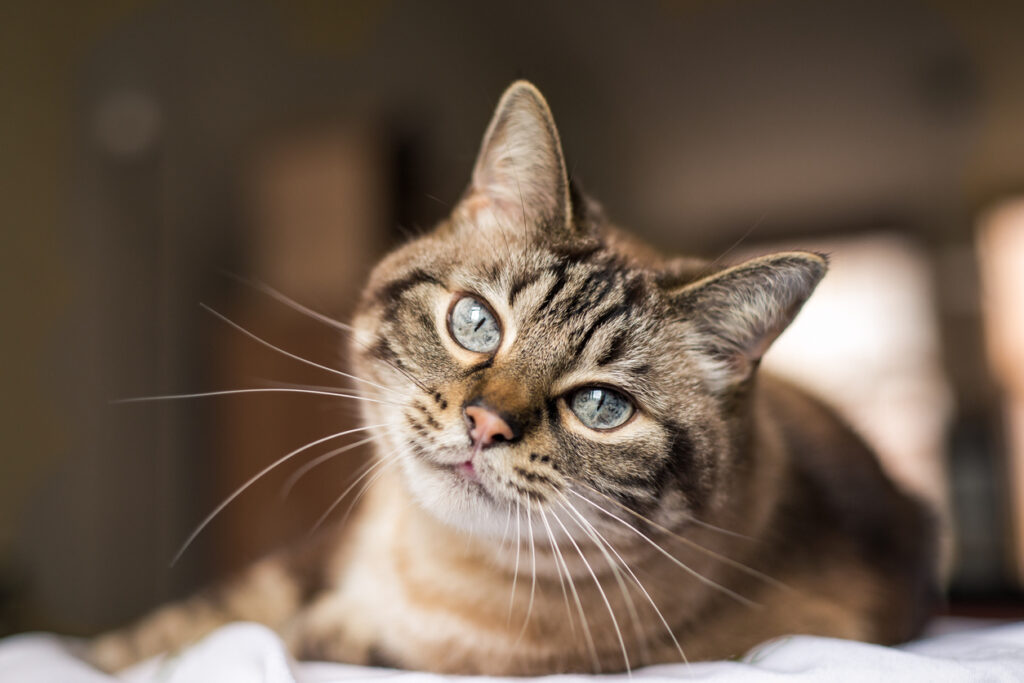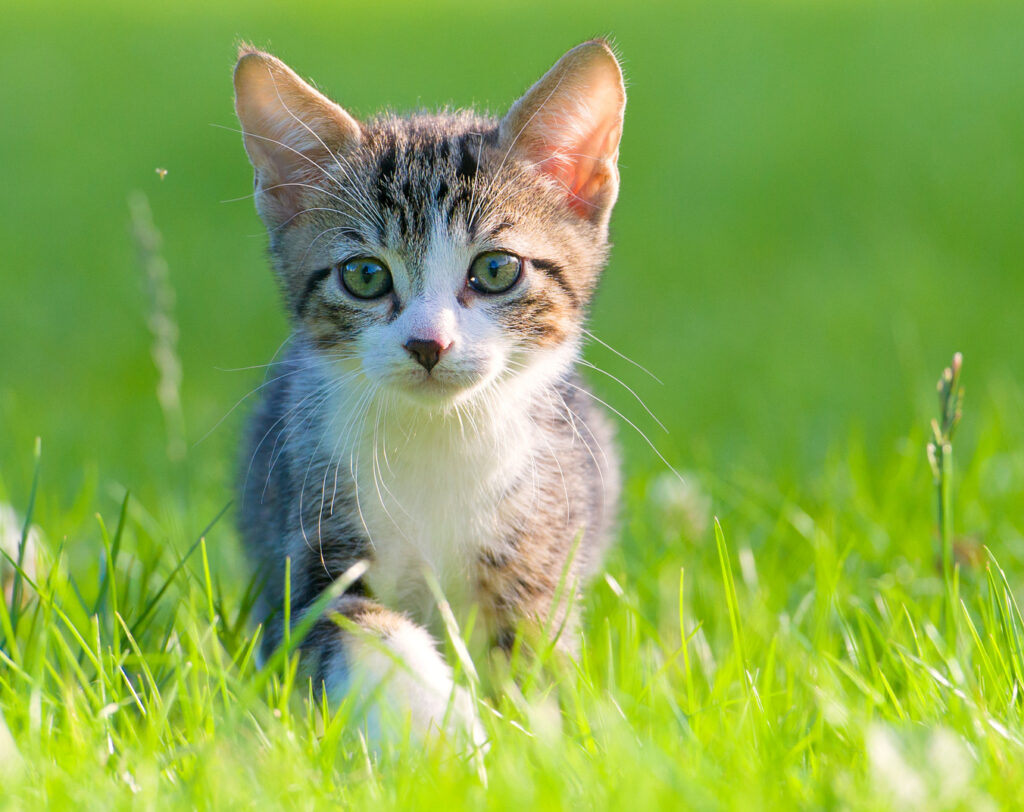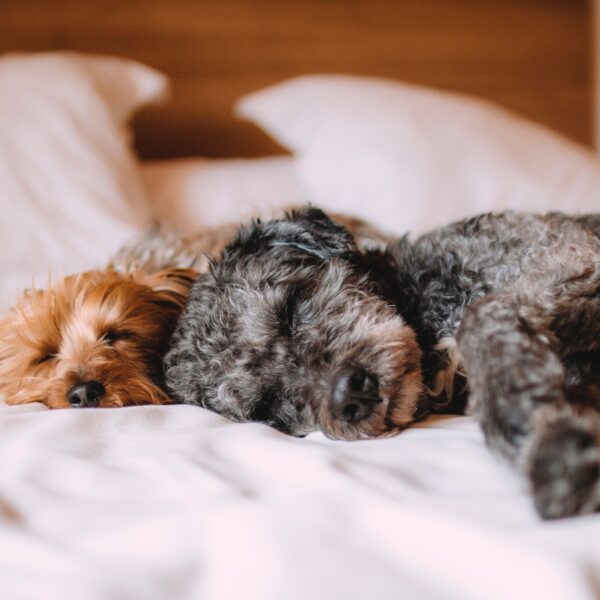All about cat life stages.
If you are wondering how old your cat is in human years, get ready for a complicated answer! Felines develop at a different rate to us humans, with a very accelerated kittenhood compared with our childhood. A cat is considered a kitten until around 1 year of age, or 18 months in larger breeds such as the Maine Coon, and at this stage their equivalent human age would be around 15. At this point, cats are sometimes referred to as juniors until they reach 2 years old, which is considered 24 human years. Once your kitty has reached adulthood, each feline year is equivalent to four human ones.

Generally, a cat will be classed as an adult until 11 years of age, at which point they become a senior. Sometimes people subdivide cat life stages further and class adults as ages 2-6, mature as 7-10, senior as 11-14 and geriatric as 15+. The cat lifespan can be up to 20 years of age, although a cat called Creme Puff is reported to have lived to 38!
How quickly do kittens grow?
Weighing in at a tiny 100g at birth, kittens then grow very rapidly, especially for the first six months. In fact, they become more than 25 times this weight by 6 months of age, weighing around 2.5-3.5kg. They will continue to grow steadily until they are at least one year old, with adult cat weight roughly 4.5kg on average. There can be a lot of individual variation in weight and size, and especially between different breeds. This means that body condition score can be a more helpful indicator of weather your pet is a healthy weight. Find out more here.
At what age does a kitten become a cat?
While kittens can look pretty grown up from about 6 months old, they’re not really an adult cat until at least 1 year of age. At this point they are sometimes classed as a ‘junior’ cat until they are 2 or 3. It is important to feed your pet a kitten diet for their first year of life as they have higher calorie and protein requirements to support all that growth. They also need a different balance of certain vitamins and minerals. For more kitten advice, take a look at our handy guide.

Adult Cats
They grow up so quickly… and if your cat has reached adulthood, there are a few changes to keep in mind. Their growth spurt will have stopped, or be close to ending, at around 1 year old so it is important to re-check that their beds and litter trays are long enough for their body-length, and to replace anything that is too small. The same goes for cat-flaps too.
Adult cats also have different dietary requirements, and can start to pile on the pounds if they are fed too much, especially if they continue to be given a kitten diet. It is always best to feed a suitable diet for your pet’s life stage, so it is time to swap to adult cat food. As with any dietary change, we recommend introducing a new food gradually to avoid a stomach upset. Over the course of a week, start mixing in bigger proportions of the new food to the old diet until they are fully switched over.
Senior Cat – what you need to know about this cat life stage
Older cats are generally considered seniors from around 11 years of age. As with us hoomins, while some felines might still seem to be in their prime, others will start to show signs of ageing at different rates.
Senior cat care can include feeding your pet a special life stage diet. As older cats tend to be less active, senior cat foods are generally less calorie dense to help avoid weight gain. Sense of smell and taste can lessen with age, so senior food might have a higher meat content to smell and taste stronger and be more appealing to senior cats. Felines with other health problems might be recommended a specific diet by the vet, for example if they have kidney disease or diabetes.
Other considerations include opting for litter trays and cat beds with lower sides to make it easier for your cat to climb in and out. Beds should have plenty of padding, and may be more popular if placed in warm places such as near radiators. If your cat likes to perch high up, a ramp can help them access these spots more easily. They might also need easier access to food and water bowls, with water bowls being spread around the house in several locations. The same goes for litter trays – it can take them longer to reach the loo, and is helpful to have more than one option if they are feeling desperate.
Older cats can still benefit from play as an important aspect of mental stimulation. Some cats will still enjoy the same toys that they loved as kittens, but others might prefer a more sedate game of slowly chasing a toy on a string, rather than a ball which moves more quickly. There are even food-oriented brain games designed for cats, a bit like the sudokus of the pet world! Mental enrichment can help to delay progression of age-related cognitive difficulties.
Why is my senior cat laying in the litter box?
This is a common question for owners of felines who have reached the senior cat age bracket. As with any behavioural change, it is worth speaking to a vet for advice and to help identify any underlying medical problems as early as possible. Sometimes older cats will take to sleeping in their litter tray if they have developed urinary tract or kidney problems. Another possibility is that they are finding their bed difficult to access, and it is easier to climb into the litter tray as it has lower sides.
Another common behavioural change reported by owners of older pets is that their senior cat stopped grooming. This can be one of the signs of feline arthritis, with cats grooming less as bending becomes more painful. It can also suggest that your cat is generally feeling poorly. Whatever you think the reason might be, it is best to speak to a vet.
Love your pets? So do we! Join in the conversation over on our Facebook page.


